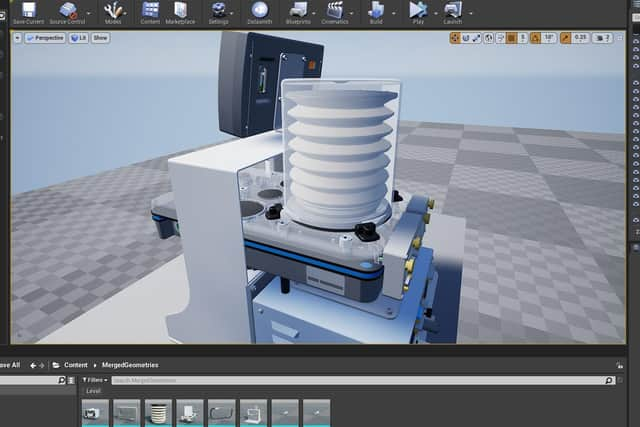BAE Systems in 3D help for coronavirus ventilator scheme
and live on Freeview channel 276
Charles Jackson is an Augmented and Virtual Reality expert in the firm’s Air sector team whose day job involves developing Typhoon simulation training for the Royal Air Force.
But since the Government’s call to produce thousands of new hospital ventilators to help Covid-19 patients breathe, he is using ‘Unreal Engine’, an advanced real-time 3D creation platform used in many popular video games, to create an instructional video.
Advertisement
Hide AdAdvertisement
Hide AdIt will be used to train people needed to complete the necessarily rigorous factory acceptance testing of each of the new Penlon ventilators before it is handed to the NHS.


He is working alongside other partners in the Ventilator Challenge UK consortium launched last month with a host of other precision engineering and Hi-tech companies.
Charles explained: “We’ve been looking at the graphics capability of cutting edge video game engines for a while to understand how they could be used to augment our training and simulation capability.
“Given the urgency for new ventilators, we’ve been able to quickly start producing an instructional video combining live video of the procedures with Unreal Engine graphics.
Advertisement
Hide AdAdvertisement
Hide Ad“Our ability to import CAD designs of the ventilator directly in to Unreal Engine and combine them with live action footage of someone performing the ventilator acceptance tests, coupled with BAE Systems’ training know-how will result in a video that makes it easier for people to learn the testing process.
“We hope this will prepare the testers being recruited so that when they do their formal training, they will already be familiar with the process and we will be able to get more people trained up more quickly to approve equipment and ultimately get it where it is needed the most.”